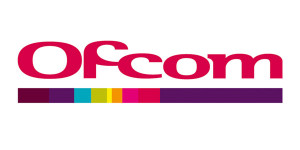 LGBT listener oriented Chorley.fm of Lancashire county is having a bit of an identity crisis. The community radio station, located in the market town of Chorley in the United Kingdom’s northwest, says it still wants to serve young and LGBT listeners, but within the context of service to a broader audience. In the UK, radio stations must petition Ofcom before they change their mission.
LGBT listener oriented Chorley.fm of Lancashire county is having a bit of an identity crisis. The community radio station, located in the market town of Chorley in the United Kingdom’s northwest, says it still wants to serve young and LGBT listeners, but within the context of service to a broader audience. In the UK, radio stations must petition Ofcom before they change their mission.
“The original commitments were produced including input from political representatives, minority groups and individuals,” Chorely management contends in its “request for key change commitments” to Ofcom.
“The resulting document specifying ambitious commitments exclusively to two rather small groups was a mistake. From day one, the station simply could not provide programming exclusively for these groups. The key commitments have also somewhat side-lined the station as successive town councils have taken the view the station is a niche organisation rather than for the whole community and this has been a constant obstacle to effective co-operation. As mentioned in our representations to the investigation, it was never the intention to serve those groups exclusively anyway. The intention was to serve the younger adults of Chorley with special output for the groups specified.”
Thus Chorley.fm wants to change its “communities to be served” description from “The young people (15-25 years of age) and the lesbian, gay, bisexual and transgender community of Chorley” to “The population that live, work and study in Chorley.”
Last year Ofcom found Chorley in breach of its license. The agency charged that too much of the station’s programming was automated. Chorley management says this resulted from the operation taking on much more than it could handle:
“After the breach decision the board attempted to meet Ofcom’s criteria for compliance. It very quickly became obvious with a workforce of volunteer presenters, even with a significant proportion from the LGBT community, that it is not possible to fill the whole schedule with content relevant to that community. In fact a number of LGBT volunteers have expressed opinions that the commitments are now outdated and discriminatory and positively declined to present targeted shows. As a result of the fact that it is not possible to produce LGBT programming across the schedule we propose the removal of this group from the character of service and other commitments, again the aim to inclusively serve this group as part of the whole community.”


